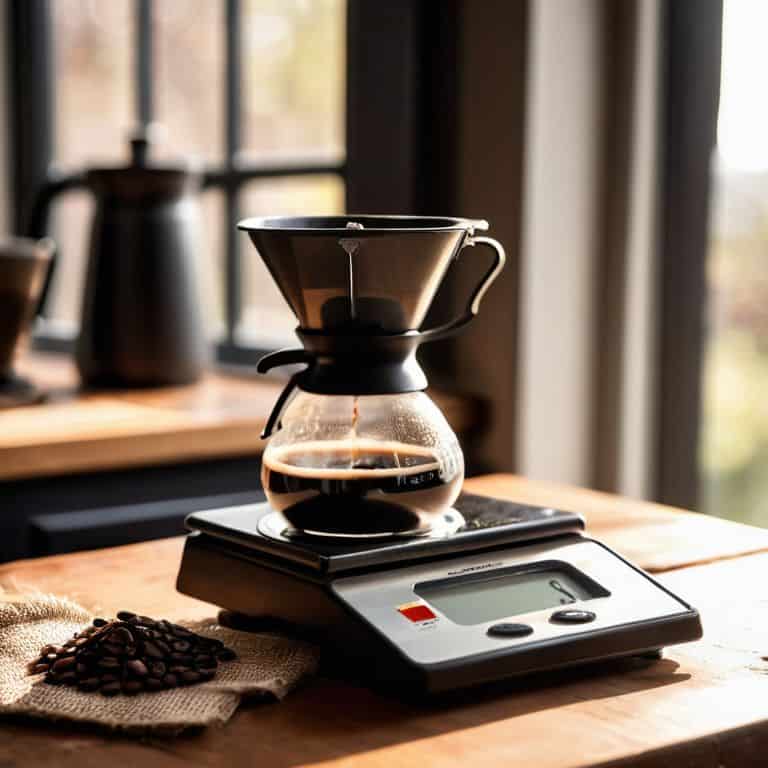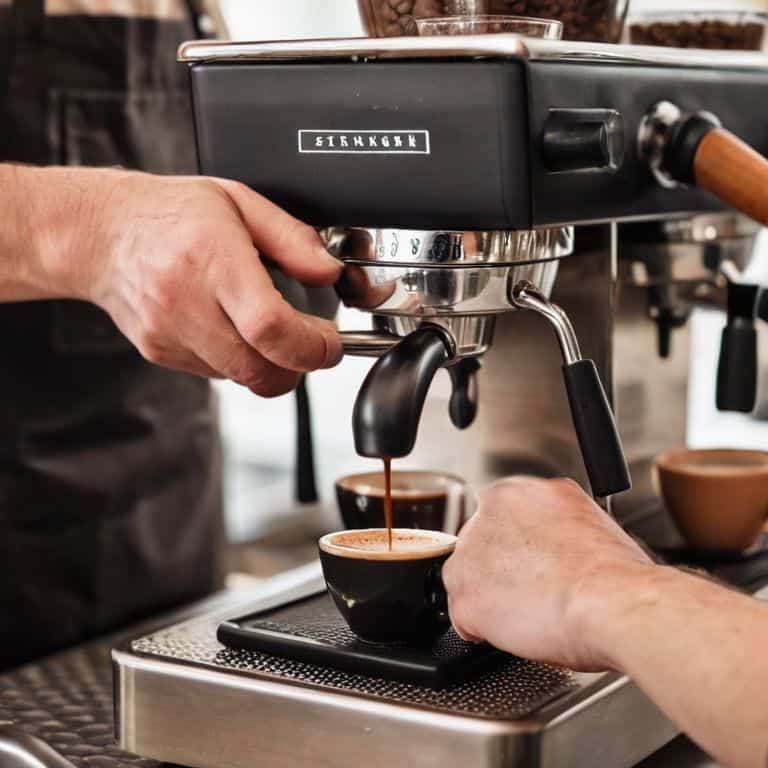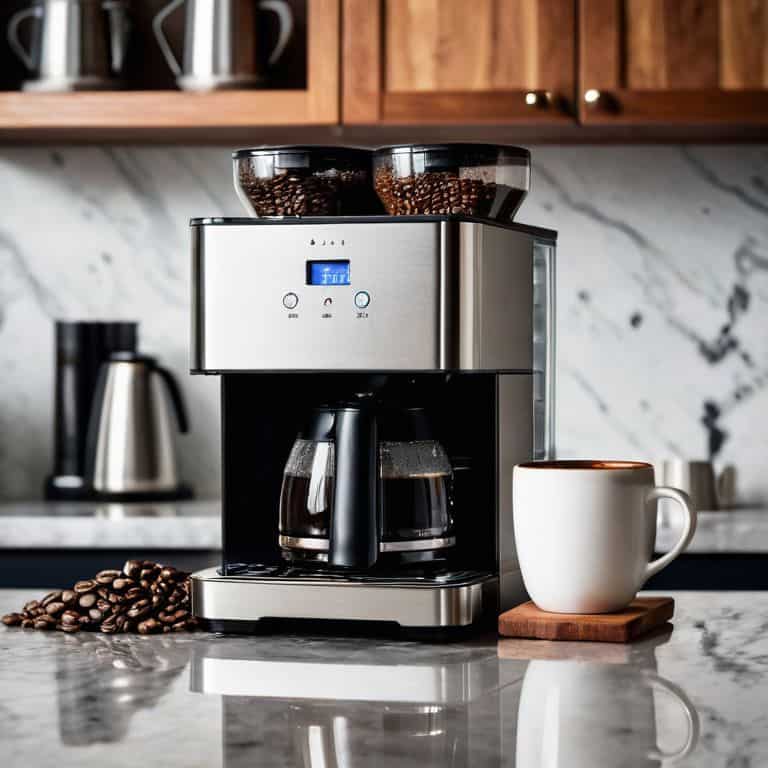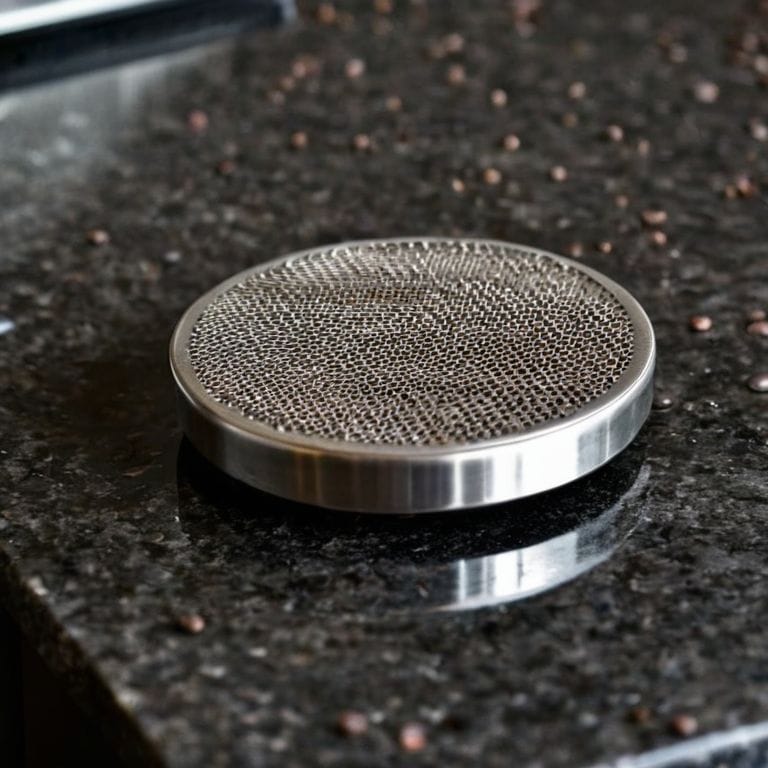I still remember the day I realized that a good coffee scale was the secret to unlocking my perfect cup. I was restoring a vintage espresso machine in my workshop, and the owner had been struggling to get the flavor just right. It turned out that their old scale was the culprit, and once we swapped it out for a reliable one, the difference was night and day. This experience solidified my belief in the importance of a well-built coffee scale, which is why I’m excited to share my expertise with you in this guide to coffee scales.
As we dive into the world of coffee scales, I want to assure you that this article will cut through the noise and give you honest advice on how to choose the best scale for your brewing needs. We’ll explore the key features to look for, from accuracy to durability, and I’ll share some of my favorite models that have withstood the test of time. Whether you’re a coffee novice or a seasoned aficionado, this guide will empower you to make informed decisions and take your coffee game to the next level. So, let’s get started on this journey to precision brewing, and discover the perfect scale to elevate your daily cup.
Table of Contents
- Guide Overview: What You'll Need
- Step-by-Step Instructions
- A Guide to Coffee Scales
- Calibrating for Perfection Coffee Scale Calibration
- Digital Coffee Scale Reviews for the Discerning Brewer
- Brewing Up Precision: 5 Key Tips for Mastering Your Coffee Scale
- Key Takeaways for the Discerning Coffee Enthusiast
- The Heart of Precision
- Conclusion: The Perfect Brew Awaits
- Frequently Asked Questions
Guide Overview: What You'll Need
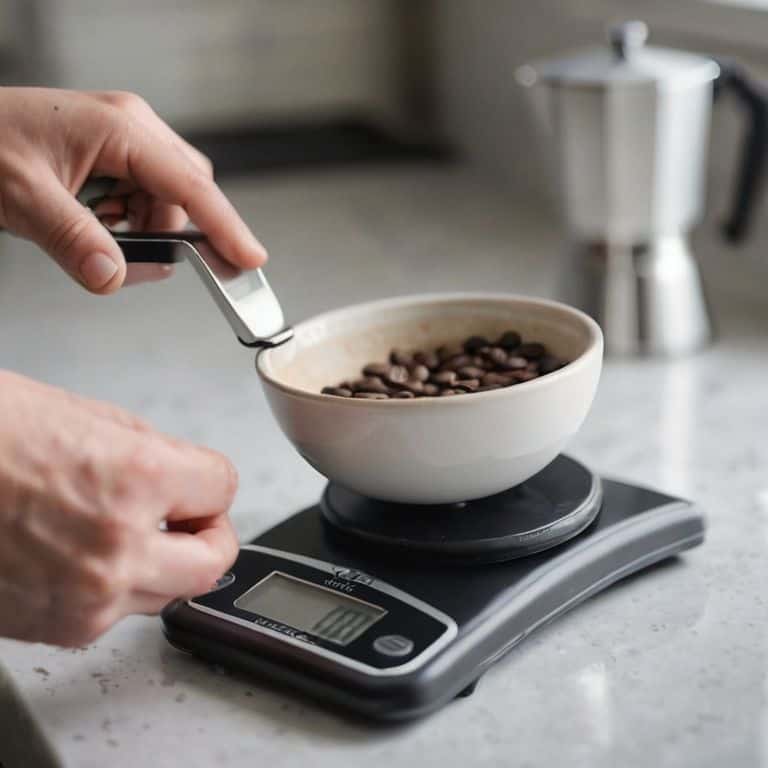
Total Time: 30 minutes to 1 hour
Estimated Cost: $20 – $50
Difficulty Level: Easy
Tools Required
- Credit Card (for calibration)
- Ruler (for measuring 6 inches)
- Pencil (for marking notes)
Supplies & Materials
- Digital Coffee Scale (with battery)
- Calibration Weights (in 1-gram increments)
Step-by-Step Instructions
- 1. First, understand your budget and what you’re looking for in a coffee scale. As someone who’s restored and modified countless coffee equipment, I can tell you that a good scale is an investment. You don’t have to break the bank, but be prepared to spend a bit more for quality. Consider what features are must-haves for you, such as accuracy, ease of use, and durability.
- 2. Next, research different types of coffee scales available on the market. You’ll find digital scales, analog scales, and even smart scales that can connect to your phone. Each has its pros and cons, and it’s essential to understand what will work best for your brewing routine. I personally prefer digital scales for their precision, but some may argue that analog scales offer a more traditional experience.
- 3. Now, evaluate the materials used in the construction of the scale. As a technician, I can tell you that build quality is crucial. Look for scales made from high-quality materials, such as stainless steel or durable plastics. Avoid scales with flimsy or cheap components that may break easily. A well-built scale will last you a long time and provide consistent results.
- 4. Consider the accuracy of the scale, which is critical for precise brewing. Look for scales with high precision, usually measured in increments of 0.1 grams. This may seem like overkill, but trust me, it makes a difference in the flavor of your coffee. Also, check if the scale has a calibration option, which ensures that it remains accurate over time.
- 5. Think about the ease of use and user experience. A good coffee scale should be intuitive and easy to navigate. Look for scales with clear displays, simple interfaces, and minimal buttons. Some scales may also come with additional features, such as timers or unit conversion, which can be useful but may also add complexity.
- 6. Next, examine the scale’s capacity and weight limit. If you plan on brewing large batches of coffee, you’ll need a scale that can handle heavier weights. On the other hand, if you’re a solo brewer, a smaller scale may be sufficient. Also, consider the scale’s resolution, which refers to the smallest unit of measurement it can display.
- 7. Finally, read reviews and ask for recommendations from fellow coffee enthusiasts. As someone who’s passionate about coffee equipment, I can tell you that the community is full of knowledgeable and helpful individuals. Look for reviews from reputable sources, and don’t be afraid to ask for advice on forums or social media groups. This will give you a better understanding of the scale’s performance and any potential issues you may encounter.
A Guide to Coffee Scales
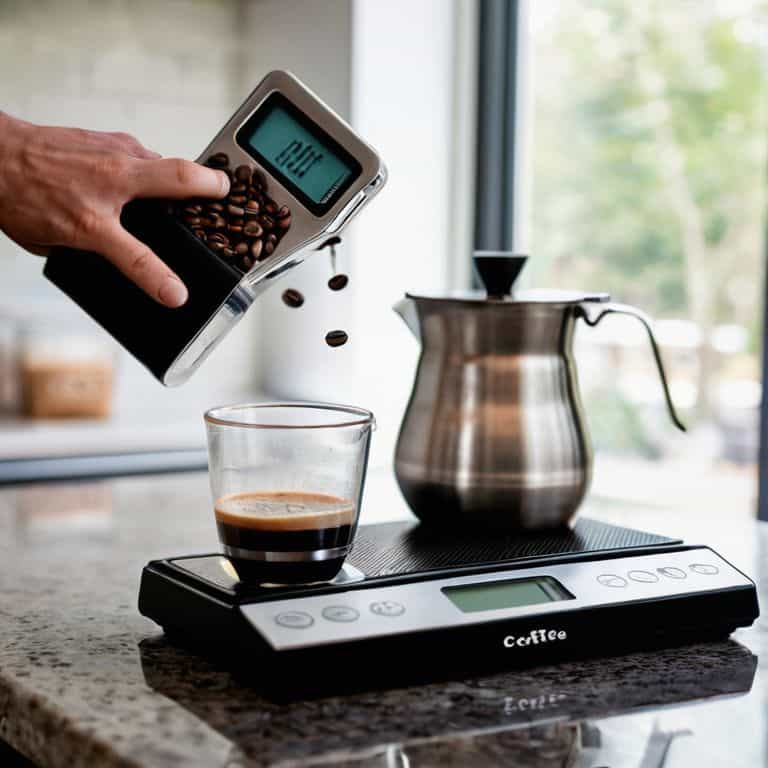
As I delve into the world of precision brewing, I’ve come to realize that accurate measurements are crucial for unlocking the perfect cup. A good coffee scale is not just a luxury, but a necessity for any serious coffee enthusiast. When it comes to coffee scale calibration, it’s essential to understand the importance of precision in measuring coffee and water ratios.
In my workshop, I’ve had the opportunity to work with various digital coffee scale reviews, and I can confidently say that a well-built scale can make all the difference in your brewing experience. The coffee brewing ratio guide is a great resource to get you started, but it’s equally important to consider the scale materials for coffee that will withstand the test of time.
For those who are always on-the-go, portable coffee scale options are a great alternative. I’ve seen some impressive designs that combine functionality with durability, often featuring a coffee scale with timer for added convenience. By investing in a high-quality coffee scale, you’ll be well on your way to brewing like a pro and enjoying a perfectly balanced cup every time.
Calibrating for Perfection Coffee Scale Calibration
Calibrating for Perfection: Coffee Scale Calibration
To ensure accuracy, calibrating your coffee scale is crucial. I always say, a good scale is only as good as its calibration. It’s a simple process, but one that’s often overlooked. Most modern scales come with an automatic calibration feature, but I prefer to do it manually. It’s a matter of placing a known weight on the scale and adjusting the settings accordingly. This step may seem tedious, but trust me, it’s essential for precise measurements.
I’ve seen my fair share of scales that were off by a few grams, which can make all the difference in your brew. By calibrating your scale, you’ll be able to dial in your coffee-to-water ratio with ease, resulting in a perfectly balanced cup. It’s all about attention to detail, and as someone who’s passionate about metalworking and building custom equipment, I can appreciate the value of precision engineering.
Digital Coffee Scale Reviews for the Discerning Brewer
As a technician who’s worked with countless coffee enthusiasts, I’ve seen how a good digital scale can elevate the brewing experience. When it comes to digital coffee scales, I look for precision, durability, and ease of use. My top picks include the Acaia Lunar and the Jensons scale, both of which boast impressive accuracy and sleek designs.
I’ve had the chance to take these scales apart, and I can appreciate the attention to detail in their construction. The Acaia Lunar, for example, features a sturdy stainless steel body and a high-precision load cell, making it a reliable choice for discerning brewers.
Brewing Up Precision: 5 Key Tips for Mastering Your Coffee Scale
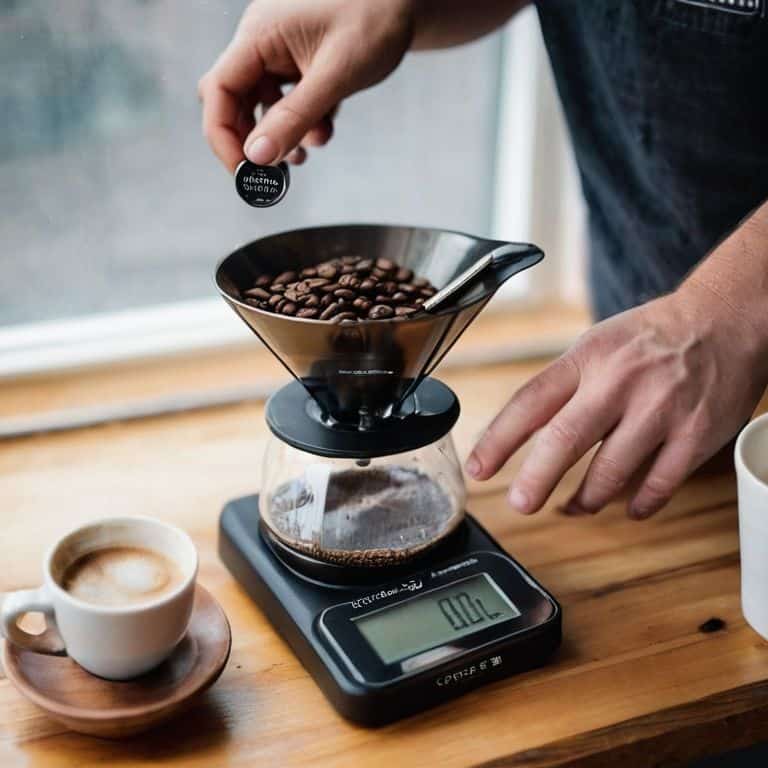
- Choose a scale with a high weight capacity to accommodate large batches and various brewing methods
- Opt for a scale with a removable and washable tray or platform for easy cleaning and maintenance
- Consider a scale with a built-in timer for simultaneously measuring and timing your brews
- Look for a scale with a high level of precision, ideally one that measures to 0.1 gram increments for optimal brewing control
- Regularly calibrate your scale to ensure accuracy and consistency in your coffee measurements, using calibration weights or known masses
Key Takeaways for the Discerning Coffee Enthusiast
Brewing precision starts with a good coffee scale, and I’ve found that investing in a high-quality, build-to-last scale is the secret to unlocking your perfect cup
A well-calibrated coffee scale is crucial for consistent flavor, and regular calibration is essential to ensure your scale remains accurate over time
When choosing a digital coffee scale, look beyond the marketing hype and focus on build quality, materials, and repairability – a scale that’s built to last will save you money and frustration in the long run
The Heart of Precision
A good coffee scale is not just a tool, it’s the guardian of your morning ritual – it’s what stands between you and a perfectly balanced cup, every time.
Simon Adler
Conclusion: The Perfect Brew Awaits
In our journey through the world of coffee scales, we’ve covered the basics of calibration and delved into the realm of digital coffee scale reviews. By now, you should have a solid understanding of how to choose the right coffee scale for your brewing needs and how to calibrate it for optimal performance. We’ve also explored the importance of investing in a high-quality coffee scale that will provide you with accurate measurements and withstand the test of time. Whether you’re a casual coffee enthusiast or a seasoned barista, a good coffee scale is an essential tool in your arsenal. By following the steps outlined in this guide, you’ll be well on your way to brewing like a pro and enjoying the perfect cup every time.
As you embark on your coffee-making journey, remember that the key to unlocking your full potential lies in the attention to detail. A good coffee scale is just the beginning – it’s the foundation upon which you can build a lifetime of brewing excellence. So, don’t be afraid to experiment, try new things, and push the boundaries of what’s possible with your coffee. With the right tools and a bit of practice, you’ll be creating cups that rival those of your favorite coffee shops in no time. Happy brewing, and I look forward to seeing the amazing things you’ll create with your newfound knowledge of coffee scales!
Frequently Asked Questions
What features should I look for in a coffee scale to ensure accuracy and durability?
When it comes to accuracy and durability, I look for scales with high-precision load cells, a sturdy build, and a waterproof design. A backlit display and adjustable units are also must-haves. I also consider the material and craftsmanship – a scale that’s built to last is one that’s made with quality components and attention to detail.
How often should I calibrate my coffee scale to maintain optimal performance?
Calibration is key to maintaining accuracy. I recommend calibrating your coffee scale every 3-6 months, or whenever you notice a slight drift in readings. For high-usage scales, like those in commercial cafes, monthly calibration is a must. Trust me, it’s a habit worth forming to ensure your brews remain consistently exceptional.
Can I use a coffee scale for other kitchen tasks, or is it solely dedicated to coffee brewing?
While I’m a coffee enthusiast at heart, I believe a good coffee scale is versatile enough for other kitchen tasks. You can use it to measure ingredients for baking or cooking, making it a valuable addition to your kitchen arsenal. The precision and durability that make it ideal for coffee also lend themselves well to other culinary pursuits.
